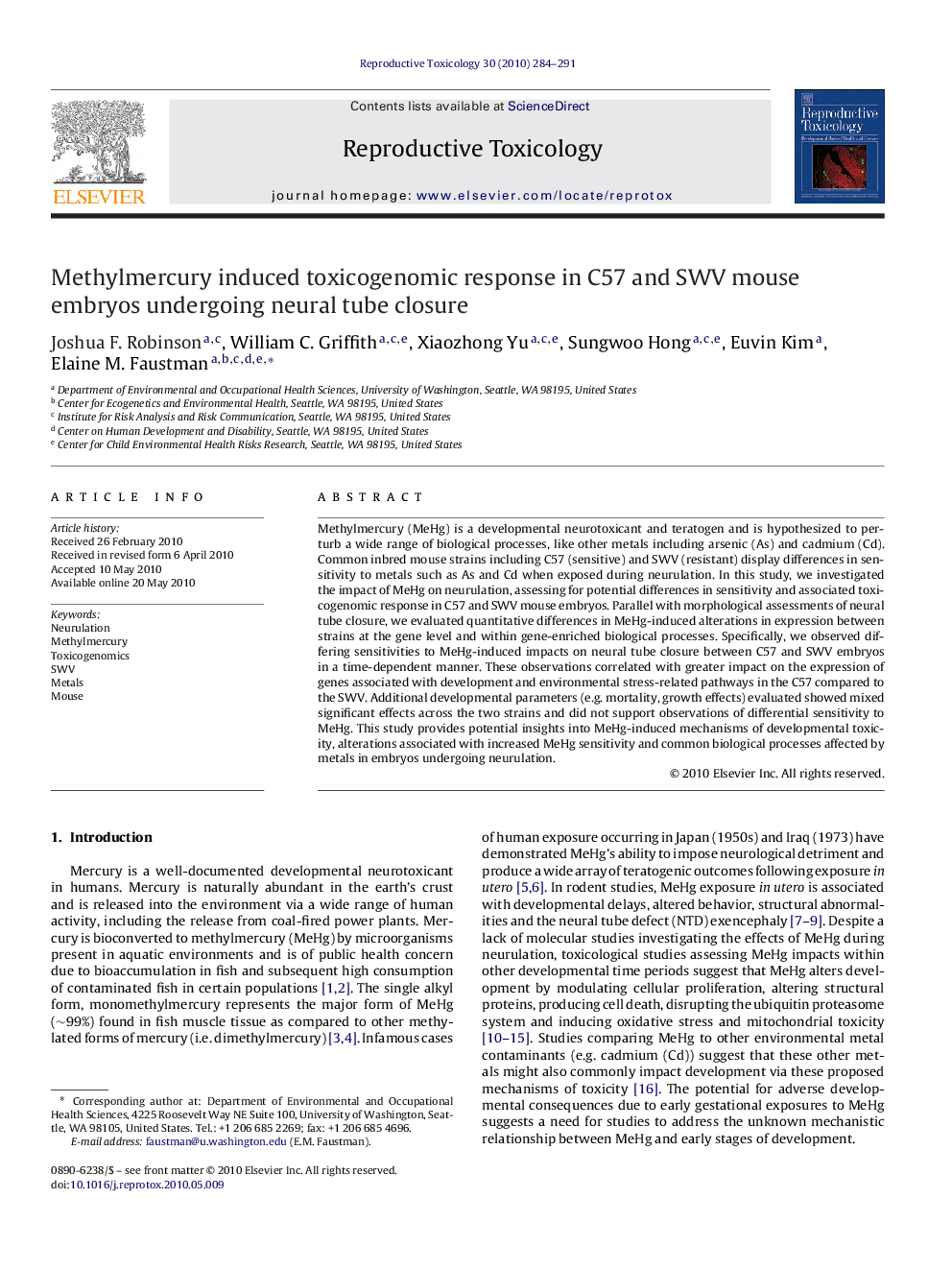| Article ID | Journal | Published Year | Pages | File Type |
|---|---|---|---|---|
| 2594136 | Reproductive Toxicology | 2010 | 8 Pages |
Methylmercury (MeHg) is a developmental neurotoxicant and teratogen and is hypothesized to perturb a wide range of biological processes, like other metals including arsenic (As) and cadmium (Cd). Common inbred mouse strains including C57 (sensitive) and SWV (resistant) display differences in sensitivity to metals such as As and Cd when exposed during neurulation. In this study, we investigated the impact of MeHg on neurulation, assessing for potential differences in sensitivity and associated toxicogenomic response in C57 and SWV mouse embryos. Parallel with morphological assessments of neural tube closure, we evaluated quantitative differences in MeHg-induced alterations in expression between strains at the gene level and within gene-enriched biological processes. Specifically, we observed differing sensitivities to MeHg-induced impacts on neural tube closure between C57 and SWV embryos in a time-dependent manner. These observations correlated with greater impact on the expression of genes associated with development and environmental stress-related pathways in the C57 compared to the SWV. Additional developmental parameters (e.g. mortality, growth effects) evaluated showed mixed significant effects across the two strains and did not support observations of differential sensitivity to MeHg. This study provides potential insights into MeHg-induced mechanisms of developmental toxicity, alterations associated with increased MeHg sensitivity and common biological processes affected by metals in embryos undergoing neurulation.
